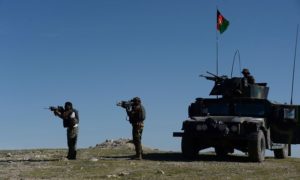 Donald Trump’s random use of the “mother of all bombs” in Afghanistan has dramatised the ongoing US failure to win the father of all wars – a conflict begun by George W Bush in 2001 when he attacked the Taliban regime in Kabul and which is now in its 16th year.
Donald Trump’s random use of the “mother of all bombs” in Afghanistan has dramatised the ongoing US failure to win the father of all wars – a conflict begun by George W Bush in 2001 when he attacked the Taliban regime in Kabul and which is now in its 16th year.
Afghanistan is the longest-running conflict in US history, and for the Afghan people it has become an interminable agony. Civilian casualties are rising. In 2016 they were the highest the UN had ever recorded, with 11,500 non-combatants killed or wounded, a third of them children.
Afghan officials said on Friday that no civilians were hurt when the US exploded the Massive Ordnance Air Blast (MOAB) device, the biggest non-nuclear bomb in its inventory, in eastern Nangarhar province. They said 36 Islamic State fighters were killed.
Given the remote location, and that the bomb has a blast radius of a mile, the official figures must be treated with caution.
No plausible explanation has been forthcoming for why General John Nicholson, the US Afghanistan commander, suddenly decided to deploy this previously unused weapon of mass destructive power at this particular moment, or whether additional MOAB attacks are planned.
Judging by his remarks after the attack, Trump seems unconcerned about the impact on civilians, or how such unilateral escalation may look to the rest of the world. He vowed during last year’s presidential campaign “to bomb the shit out of Isis”. Here is one promise “Bomber Trump” apparently intends to keep.
Three months into his presidency, a pattern is emerging. While ostensibly giving field commanders more discretion, he has in effect let the US military off the leash. In Iraq and Syria, civilian casualties are rising as a direct result.
If things go wrong, Trump can distance himself, which is what he did in January after his debut military operation – a foolhardy special forces operation in Yemen – ended badly.
Given free rein, the US air force seems to be behaving particularly recklessly. It has yet to accept full responsibility for its disastrous bombing of an apartment building in Mosul last month, which killed as many as 150 people. This week, US-directed coalition airstrikes blew up 18 allied Syrian fighters by mistake.
Last week’s naval cruise missile attacks on a Syrian airbase did nothing to halt the suffering of Syrian civilians, but they did enable Trump to pose as a tough international enforcer.
Now he is adopting a similar posture on North Korea, where this week’s deployment of a nuclear-armed naval taskforce is turning a long-standing problem into a dangerous crisis.
Trump’s crude attempt to bully Pyongyang into submission echoes his campaign style, in which threats, shouted insults, braggadocio and unsubstantiated claims took the place of dialogue and considered policies. This approach worked with many US voters, but it is unlikely to impress international hard-cases such as Kim Jong-un, Vladimir Putin, Bashar al-Assad and Iran’s ayatollahs, possibly his next target.
Trump badly wants to prove he is the real deal as president. Brushing aside wider considerations about relations with Russia or the safety of Seoul residents, his principal focus seems to be on building up his personal profile as a tough commander-in-chief who is not to be trifled with.
Having previously decried America’s role as world policeman, it is as if he has discovered the keys to the family gun cabinet. The Afghan bombing again suggests he cannot resist the urge to throw his weight around.
As with the Syria missile strikes, the MOAB attack is unlikely to have any significant impact on the course of the Afghan conflict. These kinds of “shock and awe” tactics rarely do. Isis has been making important territorial gains. The Taliban is also resurgent. One bomb, however big, will not change that dynamic.
By showing Isis this kind of attention, Trump and his military commanders have highlighted its successes while reinforcing the group’s propaganda claims to be fighting a just jihad against western infidel invaders. The bombing also underlines the failure of Nato’s post-withdrawal strategy of empowering the Afghan security forces.
Trump ignored the Afghanistan problem during the campaign, although he had previously called Bush’s intervention a “terrible mistake”. As with Syria and North Korea, he has no known policy for ending the conflict. The morning after Bomber Trump’s big blast, that is still the case.
Courtesy: THE GUARDIAN

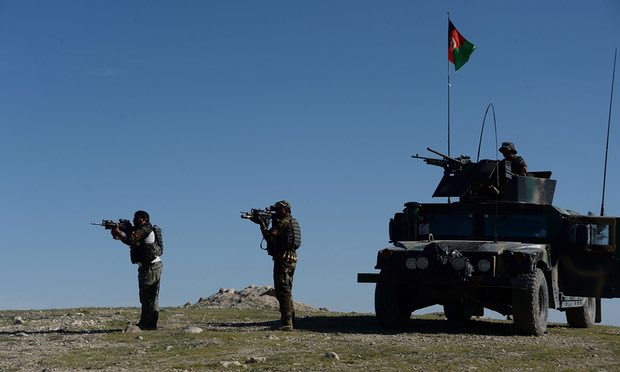
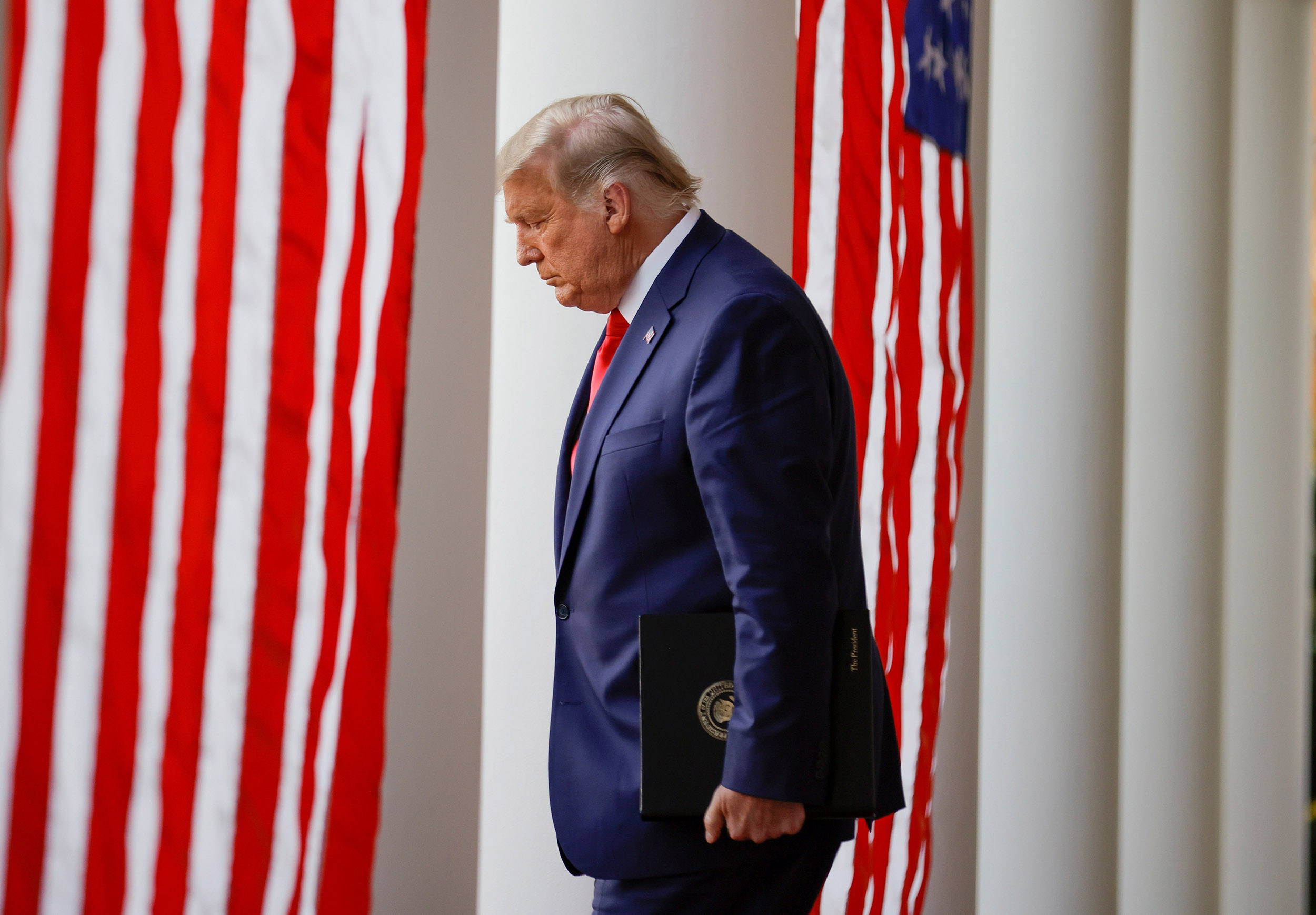
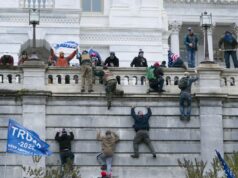
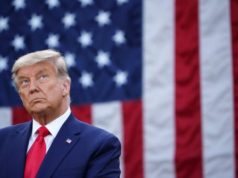



Trump flexing his muscles